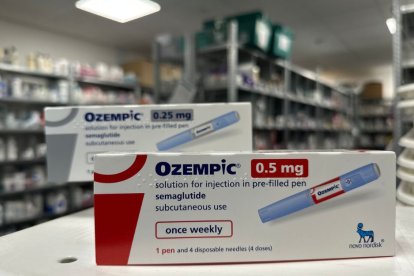Ozempic: Most Americans believe the drug should only be used to treat health problems
Despite being a diabetes medication, the reason the drug has become popular is for weight loss.

(Flickr)
Ozempic is a prescription injectable medicine that is used, along with diet and exercise, to improve blood sugar (glucose) levels in adults with Type 2 diabetes to reduce the risk of serious cardiovascular risks such as heart attack, stroke, brain damage and death. It is designed for adults who suffer from this type of diabetes with confirmed heart disease, according to its official website.
Despite being a diabetes medication, the reason why the drug has become popular is for weight loss. Personalities such as Kim Kardashian, Oprah Winfrey and Elon Musk have confirmed that they used it to lose weight. This has generated concern among society because more and more people who do not have health problems are using the drug.
"By contrast, just 12% of those familiar with these drugs say they are good options for people who want to lose weight but do not have a weight-related health condition. A far larger share (62%) say these drugs are not good options for people without a weight-related health condition, while 26% aren’t sure," explained a survey conducted by Pew Research.
The study also warned about the shortage of the drug due to its unauthorized use. "Demand for Ozempic and Wegovy has led to supply shortages, raising concerns about off-label use and impacting people who rely on these drugs to manage their health conditions," highlighted Pew Research .
In that sense, the study recalled that Ozempic belongs to a class of medications called GLP-1 agonists that control blood sugar levels and suppress appetite. Ozempic is approved by the Food and Drug Administration for the treatment of diabetes.
Meanwhile, about three-quarters of Americans say they have heard a lot or a little about Ozempic and other similar weight-loss medications. Of those surveyed, only 16% of those familiar with this drug believe it will do a lot or quite a bit to reduce obesity, while 35% believe it will do some and 33% expect it will do little or nothing at all to reduce obesity in the world.
RECOMMENDATION





















